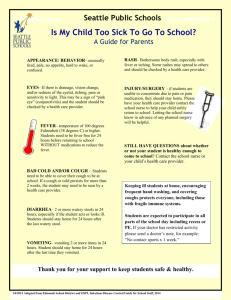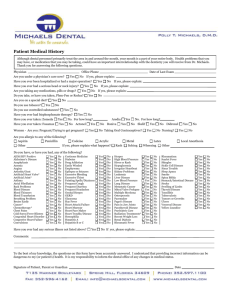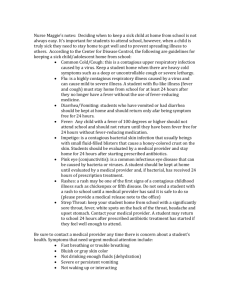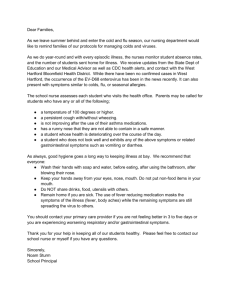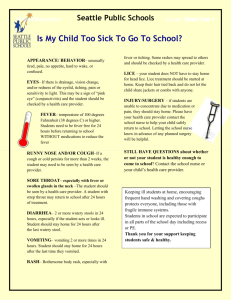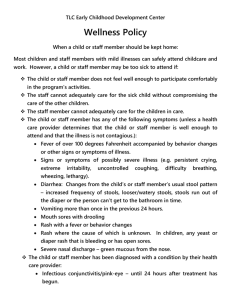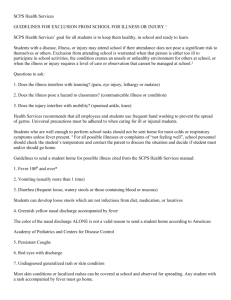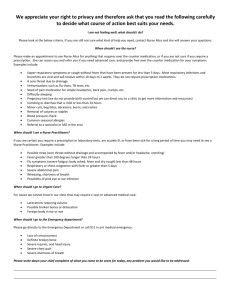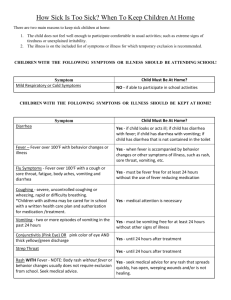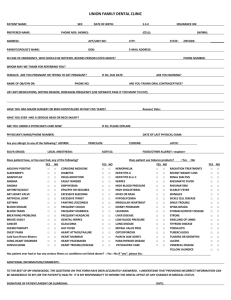When to Keep your Child Home During Cold/Flu Season
advertisement
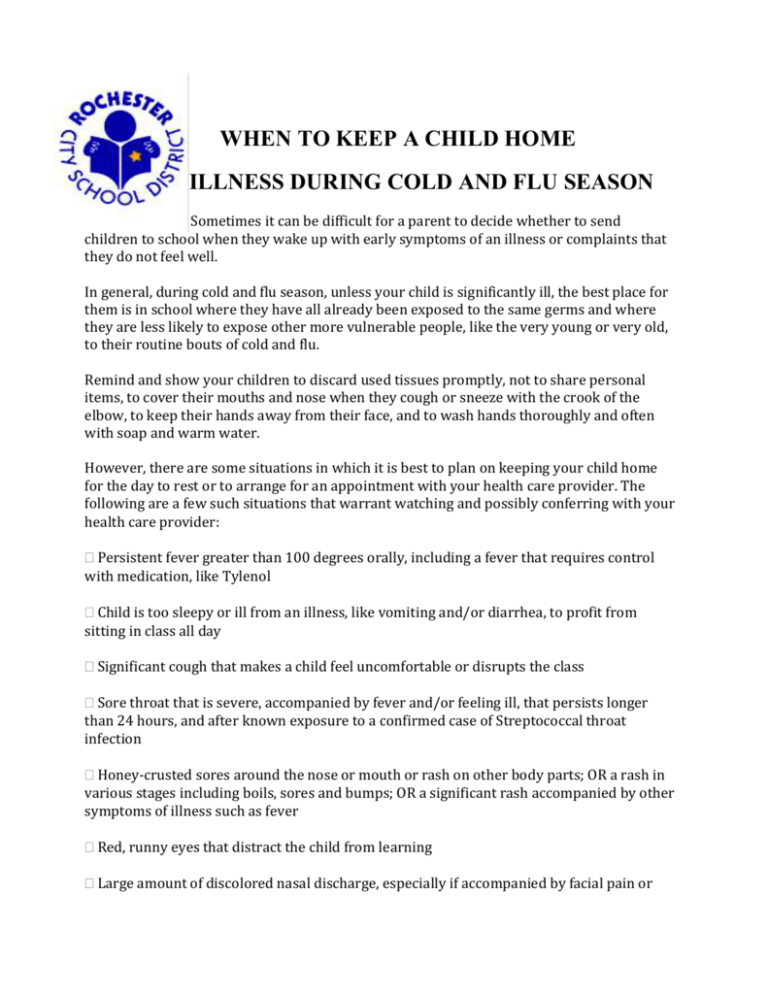
WHEN TO KEEP A CHILD HOME WITH ILLNESS DURING COLD AND FLU SEASON Sometimes it can be difficult for a parent to decide whether to send children to school when they wake up with early symptoms of an illness or complaints that they do not feel well. In general, during cold and flu season, unless your child is significantly ill, the best place for them is in school where they have all already been exposed to the same germs and where they are less likely to expose other more vulnerable people, like the very young or very old, to their routine bouts of cold and flu. Remind and show your children to discard used tissues promptly, not to share personal items, to cover their mouths and nose when they cough or sneeze with the crook of the elbow, to keep their hands away from their face, and to wash hands thoroughly and often with soap and warm water. However, there are some situations in which it is best to plan on keeping your child home for the day to rest or to arrange for an appointment with your health care provider. The following are a few such situations that warrant watching and possibly conferring with your health care provider: Persistent fever greater than 100 degrees orally, including a fever that requires control with medication, like Tylenol Child is too sleepy or ill from an illness, like vomiting and/or diarrhea, to profit from sitting in class all day Significant cough that makes a child feel uncomfortable or disrupts the class Sore throat that is severe, accompanied by fever and/or feeling ill, that persists longer than 24 hours, and after known exposure to a confirmed case of Streptococcal throat infection Honey‐crusted sores around the nose or mouth or rash on other body parts; OR a rash in various stages including boils, sores and bumps; OR a significant rash accompanied by other symptoms of illness such as fever Red, runny eyes that distract the child from learning Large amount of discolored nasal discharge, especially if accompanied by facial pain or headache Severe ear pain or drainage from the ear Severe headache, especially if accompanied by fever Any condition that you think may be serious or contagious to others Whenever there is an outbreak of a specific contagious infection, the school sends out a notice to alert you to watch out for any symptoms. If your child starts to develop symptoms, it is important that you alert your own health care provider that your child had possible exposure. Be sure to ask your provider when it is safe for your child to return to school, both for your child’s health and for the health of the rest of the school. If you send your child to school even though you suspect there is significant illness as described above, please call the school nurse to provide her/him with phone numbers where you can be reached that day should your child become more ill and require early dismissal. Finally, if you know your child is still running a fever, it is not a good idea simply to give them Tylenol and send them onto school because as soon as the medicine wears off, you are apt to get the dreaded call from the school nurse to leave work and come to pick up your feverish child. It is better to let them stay home in bed with a fever and take their medications at home until they are off all medicines and ready to learn for a full day in a classroom. If you find a pattern of your child’s asking to stay home from school, especially if there does not appear to be any obvious physical symptoms, it may be a good idea to contact your school nurse and your health care provider to discuss your concerns. Remember, whenever you keep your child home from school, please call the attendance office in advance of the start of the school day and leave a message that your child will be absent.

